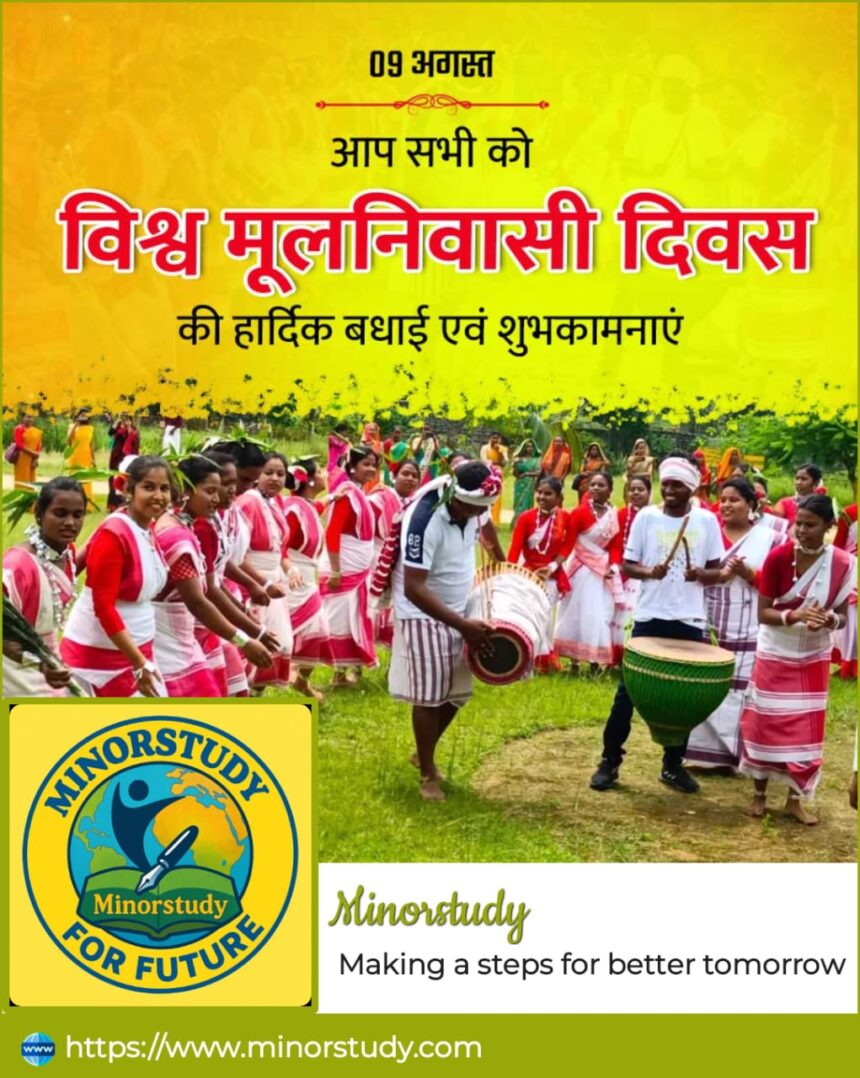World Indigenous Peoples Day – History, Facts, Significance, and Impact
Every year on August 9, the world comes together to celebrate World Indigenous Peoples Day, a day dedicated to honoring the culture, heritage, and rights of indigenous communities across the globe. These communities are the original custodians of the land, carrying forward traditions, languages, and knowledge systems that are thousands of years old. This observance is not just about recognition; it is about respect, preservation, and empowerment.
- History of World Indigenous Peoples Day
- Important Facts About World Indigenous Peoples Day
- Timeline of World Indigenous Peoples Day
- Significance of World Indigenous Peoples Day
- Observance Around the World
- Wishing on World Indigenous Peoples Day
- Important Points to Remember
- FAQs on World Indigenous Peoples Day
- Importance of World Indigenous Peoples Day in Our Life
- Conclusion – Daily Life Impact
In a rapidly globalizing world, indigenous peoples often face challenges such as loss of land, erosion of language, and threats to cultural identity. World Indigenous Peoples Day serves as a reminder that diversity is strength—and protecting indigenous heritage means protecting humanity’s shared wisdom.
History of World Indigenous Peoples Day
The United Nations General Assembly first proclaimed August 9 as the International Day of the World’s Indigenous Peoples in 1994. This date marks the first meeting of the UN Working Group on Indigenous Populations in 1982, a milestone in recognizing the rights and concerns of indigenous communities.
Over the years, the day has evolved into a global platform to discuss human rights, environmental sustainability, and cultural preservation. Each year, the UN announces a theme—such as climate action, indigenous languages, or youth empowerment—emphasizing different aspects of indigenous life.
Important Facts About World Indigenous Peoples Day
Global Representation – There are over 476 million indigenous people spread across 90 countries.
Language Diversity – Indigenous peoples speak more than 4,000 distinct languages, many of which are endangered.
Environmental Guardians – Indigenous territories cover around 25% of the world’s land and house 80% of the planet’s biodiversity.
Cultural Knowledge – Indigenous knowledge plays a crucial role in sustainable farming, herbal medicine, and climate resilience.
UN Declaration – The UN Declaration on the Rights of Indigenous Peoples was adopted in 2007, providing a framework for justice and equality.
Annual Themes – Every year focuses on a unique theme to address pressing issues.
Resilience – Despite centuries of colonization, indigenous cultures remain vibrant and adaptive.
Timeline of World Indigenous Peoples Day
| Year | Event |
|---|---|
| 1982 | First meeting of the UN Working Group on Indigenous Populations. |
| 1994 | UN officially declares August 9 as International Day of the World’s Indigenous Peoples. |
| 2007 | UN adopts the Declaration on the Rights of Indigenous Peoples. |
| 2019 | International Year of Indigenous Languages. |
| 2020–2024 | Focus on indigenous peoples and COVID-19 recovery, climate change, and youth leadership. |
Significance of World Indigenous Peoples Day
This day is more than just a commemoration—it is a call to action. It emphasizes:
Cultural Preservation – Protecting indigenous languages, art, music, and traditions.
Human Rights – Addressing issues such as discrimination, marginalization, and land rights.
Environmental Protection – Recognizing the role of indigenous peoples as natural stewards.
Social Justice – Encouraging governments and organizations to promote equality.
Intergenerational Wisdom – Passing down traditional knowledge for future generations.
Observance Around the World
World Indigenous Peoples Day is marked by cultural festivals, panel discussions, workshops, art exhibitions, and traditional music performances. Many countries host storytelling sessions, where elders share historical tales and traditional wisdom. Educational institutions often organize debates and essay competitions to raise awareness.
Social media campaigns with hashtags like #IndigenousPeoplesDay and #WeAreIndigenous play a huge role in spreading the message globally.
Wishing on World Indigenous Peoples Day
If you want to wish someone on this day, your message should be respectful, appreciative, and inclusive. Examples:
“On World Indigenous Peoples Day, let us honor the voices that have carried humanity’s wisdom for centuries.”
“Wishing everyone a thoughtful World Indigenous Peoples Day—may we always protect our cultural roots.”
“Today, we celebrate the resilience and beauty of indigenous heritage. Let’s walk together toward equality.”
Important Points to Remember
Indigenous peoples are not just historical figures—they are living communities shaping the modern world.
Preserving indigenous rights is crucial for human rights, biodiversity, and cultural diversity.
Everyone can contribute by learning, supporting, and advocating for indigenous causes.
FAQs on World Indigenous Peoples Day
Q1. Why is World Indigenous Peoples Day celebrated on August 9?
It commemorates the first meeting of the UN Working Group on Indigenous Populations in 1982.
Q2. How many indigenous peoples are there in the world?
Over 476 million people across 90 countries.
Q3. What are some challenges faced by indigenous peoples?
Loss of land, climate change impacts, cultural erosion, and socio-economic marginalization.
Q4. How can I support indigenous communities?
Support indigenous businesses, learn their history, promote their art, and advocate for their rights.
Q5. What is the role of indigenous peoples in environmental conservation?
They safeguard biodiversity, practice sustainable land use, and preserve ecosystems.
Importance of World Indigenous Peoples Day in Our Life
Even if you are not part of an indigenous community, this day matters to you because:
Indigenous cultures preserve biodiversity, which affects global food security and climate balance.
They inspire sustainable living, showing ways to coexist with nature.
Their philosophies often emphasize community over individualism, something our modern world can learn from.
Conclusion – Daily Life Impact
World Indigenous Peoples Day teaches us that cultural diversity is humanity’s greatest asset. By recognizing and respecting indigenous peoples, we protect not only their heritage but also the planet’s environmental health and our shared human values.
Supporting indigenous rights is not charity—it is justice. Every time you choose to learn about their traditions, support their crafts, or speak up for their rights, you are helping create a more inclusive, respectful, and sustainable future.








